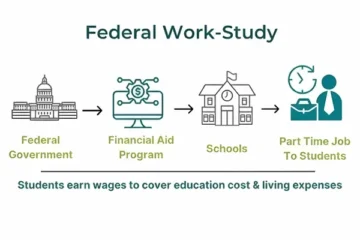Diploma in Carpentry Studies (free to learn)
Free online courses for beginners, covering safety, tools, cutting, assembly, and basic projects.
Advertising
What Is the Diploma in Carpentry Studies?
The Diploma in Carpentry Studies is a free online certification program that teaches modern carpentry techniques and building methods.
This comprehensive course covers essential tools, materials, and construction practices needed for today’s carpentry work.
Overview of the Program
The Diploma in Carpentry Studies is offered through Alison’s online learning platform.
This free carpentry course takes between 5-6 hours to complete at your own pace.
You can access all course materials from any device with internet access.
The program includes video lessons, reading materials, and interactive content about carpentry practices.
The course covers both traditional and modern carpentry methods.
You will learn how the trade has changed over time with new building materials and construction techniques.
Key topics include:
- Introduction to carpentry as a trade
- Building materials and their uses
- Hand tools and power tools
- Fasteners and adhesives
- Stair construction and components
- Modern carpentry procedures
The program is designed for flexible learning. You can study during breaks, evenings, or weekends from your home.
Accreditation and Recognition
The diploma provides a CPD (Continuing Professional Development) qualification upon completion. This means the course meets professional standards for skills training.
Alison is a recognized online education provider. The platform has delivered courses to millions of learners worldwide since 2007.
While this is not the same as a college degree, the certificate shows you have completed structured carpentry training.
Many employers recognize CPD qualifications as proof of professional development.
The course certificate can be downloaded and printed once you finish all modules. You can add this credential to your resume or professional profile.
Who Should Enroll?
This carpentry course works well for several types of learners. Beginners with no construction experience can start from the basics.
DIY enthusiasts who want to improve their home repair skills will find practical value. The course teaches proper techniques for common carpentry tasks.
Career changers considering construction work can explore the trade without cost. You will learn if carpentry matches your interests and abilities.
Current workers in related fields like general construction or home improvement can expand their knowledge. The course covers specific carpentry methods that complement other building skills.
Students preparing for apprenticeships or formal training programs benefit from this foundation. You will understand basic concepts before starting hands-on work.
Key Learning Outcomes
After completing this diploma in carpentry, you will understand the carpentry trade’s history and modern practices.
The course explains how construction methods have improved over decades.
You will identify different building materials and know when to use each type. This includes wood products, hardware, and modern composite materials.
Tool knowledge forms a major part of the curriculum. You will learn the purpose and proper use of both hand tools and power tools used in carpentry work.
The program teaches construction techniques for various projects. You will understand how to plan, measure, and execute carpentry tasks safely and effectively.
Safety procedures and industry standards are covered throughout the course. You will learn how to work safely and follow building codes and regulations.
How Free Online Learning Works
Free online learning platforms make carpentry education accessible without tuition costs.
The system uses structured modules, digital assessments, and certificate programs to deliver professional training.
About Alison and Its Free Model
Alison operates as a free learning platform that offers carpentry courses without charging students for basic access.
The platform makes money through optional premium services and partnerships rather than student fees.
You can access all course materials, videos, and lessons at no cost. The free model includes complete course content and basic certificates upon completion.
Premium options include:
- Enhanced certificates with better formatting
- Ad-free learning experience
- Priority customer support
- Downloadable course materials
The platform has served millions of students worldwide since 2007. This experience helps ensure course quality and reliable access to materials.
Course Structure and Modules
The Diploma in Carpentry Studies divides into separate modules that cover specific topics. Each module focuses on one area of carpentry knowledge or skills.
Core modules typically include:
- Introduction to carpentry as a trade
- Tools and equipment usage
- Building materials and methods
- Safety procedures and practices
- Joinery techniques and applications
You progress through modules in order or jump to specific topics based on your needs.
Each module contains video lessons, text materials, and practical examples.
Lessons range from 10 to 30 minutes each. This format lets you learn during short breaks or longer study sessions.
The platform tracks your progress automatically. You can see which lessons you have completed and which ones remain.
Assessment and Certification
Online learning uses digital tests to check your understanding of carpentry concepts.
These assessments appear at the end of each module and cover the main points from the lessons.
Most tests use multiple choice questions about tools, techniques, and safety procedures. You need to pass each assessment before moving to the next module.
Assessment features include:
- Immediate feedback on answers
- Multiple attempts allowed
- Clear explanations for correct answers
- Progress tracking across all modules
You receive a certificate after completing all modules and passing the final assessment. The certificate shows your completion of the carpentry diploma program.
Free certificates display your name, course title, and completion date. These documents can help show employers your carpentry knowledge.
Benefits of Online Learning
Online courses let you study carpentry on your own schedule without traveling to a classroom.
You can learn early in the morning, during lunch breaks, or in the evening.
The digital format works on phones, tablets, and computers. This flexibility means you can study at home, work, or anywhere with internet access.
Key advantages include:
- No commute time or travel costs
- Self-paced learning speed
- Ability to replay difficult lessons
- Access to materials 24 hours a day
Free courses remove financial barriers that prevent many people from learning new trades. You avoid tuition fees, textbook costs, and transportation expenses.
The online format also provides consistent instruction quality.
Every student receives the same expert-level teaching and up-to-date information about modern carpentry methods.

Fundamental Carpentry Skills and Knowledge
Modern carpentry requires mastering both traditional techniques and updated construction methods.
Carpenters need specific tool knowledge, material understanding, and safety practices to succeed in today’s construction industry.
Essential Skills for Carpenters
Measuring and Layout Skills form the foundation of carpentry work.
You must learn to read tape measures, squares, and levels accurately. These tools help you mark cuts and ensure your projects stay straight and level.
Cutting Techniques are critical for quality work.
You need to master both hand saws and power saws. Circular saws, miter saws, and jigsaws each serve different purposes in carpentry projects.
Joinery Methods connect wood pieces together. You should understand:
- Butt joints – Simple end-to-end connections
- Dado joints – Grooves cut across wood grain
- Mortise and tenon – Strong interlocking joints
- Dovetail joints – Decorative and strong connections
Tool Handling covers both hand tools and power tools safely. Hammers, chisels, planes, and screwdrivers require proper technique. Power tools need extra care and safety knowledge.
Modern Carpentry Practices
Modern carpentry uses improved building materials beyond traditional wood.
You work with engineered lumber, composite materials, and metal fasteners. These materials offer better strength and weather resistance.
Building Codes guide all construction work today.
You must understand local rules about structural requirements and safety standards. These codes protect building occupants and ensure proper construction.
Advanced Fasteners have replaced many traditional joining methods.
You use screws, bolts, and specialized hardware for stronger connections. Construction adhesives also supplement mechanical fasteners.
Safety Standards are now mandatory on all job sites.
You need personal protective equipment and knowledge of safe work practices. This includes proper ladder use and tool safety.
Career Opportunities in Construction
The construction industry offers many paths for skilled carpenters. Residential construction includes home building, remodeling, and repair work.
You might frame houses, install cabinets, or build decks.
Commercial construction involves larger buildings like offices and stores. This work often requires reading blueprints and working with construction teams.
Specialized areas let you focus on specific skills:
- Cabinet making and millwork
- Finish carpentry and trim work
- Concrete forming and framing
- Stair construction
Self-employment is common in carpentry. Many carpenters start their own contracting businesses after gaining experience. You can serve residential customers or work as a subcontractor.
Job growth remains steady as construction continues nationwide. Skilled carpenters earn good wages and have job security in most areas.
Building Materials and Methods
Modern carpentry relies on diverse materials ranging from traditional lumber to engineered composites, while construction methods have evolved to meet both residential and commercial building demands.
Understanding material properties and proper construction techniques forms the foundation of professional carpentry work.
Introduction to Building Materials
Building materials serve as the backbone of any construction project. You need to understand how different materials behave under various conditions.
Wood remains the most common material in carpentry. It offers natural strength and workability.
Concrete provides durability for foundations and structural elements. You’ll encounter it in footings, slabs, and walls.
Steel adds reinforcement and structural support. Many projects combine steel with wood framing.
Composite materials blend different substances to create improved properties. These include strength, moisture resistance, and dimensional stability.
Each material has specific uses based on its properties. Load-bearing capacity determines structural applications. Weather resistance affects exterior use.
Lumber, Plywood, and Engineered Wood
Lumber comes in standard dimensions and grades. Softwoods like pine and fir work well for framing. Hardwoods like oak provide durability for finished surfaces.
You’ll work with these common lumber sizes:
- 2×4, 2×6, 2×8 for framing
- 1×4, 1×6, 1×8 for trim and boards
- 4×4, 6×6 for posts and beams
Plywood consists of thin wood layers glued together. The grain direction alternates between layers. This creates strength in both directions.
Interior plywood works for cabinets and subflooring. Exterior plywood resists moisture for outdoor use.
Engineered wood products offer consistent quality. Laminated veneer lumber (LVL) provides strong beams. Oriented strand board (OSB) costs less than plywood for sheathing.
Engineered materials reduce waste and use smaller trees more efficiently.
Building Boards and Panels
Drywall creates smooth interior walls and ceilings. Standard thickness is 1/2 inch for walls and 5/8 inch for ceilings.
You’ll cut, hang, and finish drywall with joint compound and tape.
Cement board works in wet areas like bathrooms. It won’t rot or support mold growth like regular drywall.
Insulation boards improve energy efficiency. Foam boards provide high R-values in thin profiles.
Siding panels protect exterior walls from weather. Options include fiber cement, vinyl, and engineered wood.
Panel products speed up construction compared to individual boards. They cover large areas quickly with fewer joints.
Commercial and Residential Construction Methods
Residential construction typically uses wood frame methods. Platform framing builds one floor at a time. Balloon framing runs studs from foundation to roof.
You’ll install floor systems, wall frames, and roof structures in sequence.
Commercial construction often uses steel and concrete. These materials handle larger loads and span greater distances.
Building codes differ between residential and commercial projects. Commercial work requires more permits and inspections.
Construction methods vary by region and building type:
| Method | Best For | Materials |
|---|---|---|
| Platform Frame | Houses, small buildings | Wood lumber |
| Steel Frame | Large buildings | Steel beams, metal studs |
| Concrete Block | Foundations, walls | Concrete masonry units |
| Post and Beam | Open spaces | Heavy timber or steel |
Each method has specific techniques for joining materials and transferring loads safely to the foundation.
Fasteners, Adhesives, and Carpentry Tools
Fasteners like nails and screws hold wood pieces together, while adhesives provide extra bonding strength.
Power tools and hand tools help carpenters cut, shape, and assemble materials safely and efficiently.
Types of Fasteners: Nails, Screws, and Anchors
Nails are the most basic fasteners in carpentry. Common nails work best for framing and rough construction work. Finish nails have small heads that you can hide in trim work.
Box nails are thinner than common nails and prevent wood from splitting. Brad nails are even thinner and perfect for delicate work. You drive these with a nail gun or hammer.
Screw Types:
- Wood screws – Standard choice for joining wood pieces
- Deck screws – Coated to resist weather and moisture
- Drywall screws – Fine threads grip drywall material
- Lag screws – Heavy-duty screws for big projects
Screws hold stronger than nails. They also come out easier if you need to take something apart later.
Mechanical anchors work in concrete and masonry. Wedge anchors expand inside holes to create strong connections.
Toggle bolts spread out behind hollow walls for secure mounting.
Understanding and Using Adhesives
Wood glue creates strong bonds between wood pieces. Yellow glue (aliphatic resin) sets fast and cleans up with water. It works well for indoor projects.
White glue takes longer to dry but costs less. Polyurethane glue expands as it cures and fills small gaps. This type resists moisture better than other wood glues.
Application Tips:
- Clean surfaces before applying glue
- Spread thin, even layers
- Clamp pieces together while drying
- Remove excess glue before it hardens
Construction adhesive works on many materials. You can use it with nails or screws for extra strength. It comes in tubes that fit caulk guns.
Epoxy creates very strong bonds but costs more. It works well for repairs and filling gaps. Mix two parts together before using.
Carpentry Tools and Their Uses
Hand tools form the foundation of carpentry work. A hammer drives nails and removes them with the claw end. Choose 16-20 ounce hammers for most jobs.
Measuring tools keep your work accurate. A tape measure handles long distances. A combination square checks right angles and marks cut lines.
Essential Hand Tools:
- Chisels for cutting joints and shaping wood
- Hand saws for cutting when power isn’t available
- Levels for checking straight and plumb surfaces
- Utility knives for marking and trimming
Screwdrivers come in Phillips and flathead types. Get several sizes of each. A drill/driver works faster but hand screwdrivers give you more control.
Clamps hold pieces together while glue dries. Bar clamps work for long boards. C-clamps handle smaller jobs. You can never have too many clamps.
Power Tools Safety and Maintenance
Power tools speed up your work but require careful handling. Always wear safety glasses when using any power tool. Hearing protection helps with loud tools like circular saws.
Check power cords before each use. Replace damaged cords right away. Keep cutting tools sharp – dull blades are more dangerous than sharp ones.
Key Safety Rules:
- Unplug tools before changing blades
- Secure your work piece before cutting
- Keep hands away from cutting areas
- Let blades stop completely before setting tools down
Clean tools after each use. Remove sawdust and debris that can cause problems. Oil moving parts according to the manual. Store tools in dry places to prevent rust.
Replace worn parts before they break. Dull saw blades burn wood and strain motors. New blades cut cleaner and safer. Keep spare blades and common parts on hand.
Check tool manuals for maintenance schedules. Some tools need regular oil changes or belt adjustments. Taking care of your tools makes them last longer and work better.
Core Construction Techniques Taught
Students learn hands-on skills in floor systems, wall framing, and roof construction. These techniques form the foundation of modern carpentry work.
Floor Systems and Platform Assemblies
You will learn to build platform frame construction, the most common method in residential building. This technique involves building floors one level at a time.
Key components include floor joists, subflooring, and support beams. You learn proper joist spacing, which is typically 16 or 24 inches on center.
The course covers different joist materials:
- Solid lumber joists
- Engineered lumber (I-joists)
- Floor trusses
You practice installing rim boards and blocking between joists. These add strength and prevent warping.
Subflooring installation is a major focus. You learn to use plywood or OSB panels. Proper fastening prevents squeaks and movement.
The program teaches load calculations. You understand how weight transfers through the floor system to the foundation.
Wall and Ceiling Framing Basics
Wall framing starts with learning the parts of a wall frame. These include top plates, bottom plates, studs, and headers.
You learn standard stud spacing of 16 inches on center. This spacing works with standard drywall and insulation sizes.
The course covers different framing methods:
- Platform framing (most common)
- Balloon framing (older method)
- Advanced framing techniques
Header construction is important for openings. You learn to size headers for doors and windows based on span tables.
Corner construction gets special attention. You practice building strong corners that allow for insulation and drywall attachment.
Ceiling framing involves joists or trusses. You learn how ceiling systems connect to walls and support loads from above.
Roof Construction and Truss Installation
You start with basic roof types like gable, hip, and shed roofs. Each type has different framing requirements.
Rafter cutting is a key skill. You learn to mark and cut common rafters, including the seat cut and plumb cut.
The course covers roof pitch calculations. You use framing squares to determine angles and lengths.
Truss installation is increasingly common. You learn safe handling and proper placement of manufactured trusses.
Ridge beam installation connects everything together. You practice setting ridge boards and beams at the correct height.
Sheathing application completes the roof structure. You learn to install plywood or OSB panels over the frame.
Safety procedures are emphasized throughout. Working at height requires proper equipment and techniques.
Specialized Carpentry Components
Advanced carpentry work requires mastering specialized components that form the core of building construction. These skills include proper installation of doors and windows, working with concrete forms and reinforcement, and building safe stairway systems.
Doors and Windows: Selection and Installation
Selecting the right doors and windows affects both function and energy efficiency. You need to consider material types like wood, vinyl, aluminum, and fiberglass.
Wood frames offer natural insulation but require maintenance. Vinyl provides low maintenance and good insulation. Aluminum is strong but conducts heat and cold.
Installation steps follow a specific order:
- Measure the rough opening accurately
- Check for square and level
- Apply weatherproofing membrane
- Set the frame with proper shimming
- Secure with appropriate fasteners
- Install trim and caulking
Window installation requires careful attention to flashing details. This prevents water damage behind the frame. You must install head flashing above the window and step flashing on the sides.
Door installation needs proper threshold sealing. The bottom seal prevents air and water infiltration. You should also check that hinges align correctly and the door swings smoothly.
Working with Concrete: Forms, Reinforcement, and Finishes
Concrete work in carpentry involves building forms that shape poured concrete. These temporary structures must be strong enough to hold wet concrete without moving.
Form materials include plywood, lumber, and metal panels. You need to brace forms properly to prevent bulging. Release agents help forms separate cleanly from cured concrete.
Reinforcement strengthens concrete against cracking. Steel rebar provides tensile strength that concrete lacks. You must position rebar correctly within the concrete thickness.
Common reinforcement patterns include:
- Grid patterns for slabs
- Continuous bars for footings
- Stirrups for beams
Concrete finishes affect both appearance and durability. Float finishes create smooth surfaces. Broom finishes add texture for slip resistance. You apply finishes while concrete is still workable.
Timing is critical with concrete work. You have a limited window to make adjustments before concrete hardens.
Introduction to Stairs: Fundamentals and Safety
Stair construction follows strict building codes for safety. These rules control rise and run dimensions, handrail height, and tread width.
Basic stair components include:
- Stringers: Support the treads and risers
- Treads: The horizontal walking surface
- Risers: Vertical boards between treads
- Handrails: Safety grips along the stairs
Standard rise height ranges from 7 to 8 inches. Tread depth should be at least 10 inches. These measurements ensure comfortable and safe climbing.
Safety requirements include proper lighting and handrails. Handrails must be 34 to 38 inches high. They need secure mounting to wall studs or posts.
Stair layout requires careful calculation. You measure total rise and divide by individual step height. This determines the number of steps needed. The remaining space determines tread depth.
Building materials for stairs include solid lumber, engineered lumber, and metal components. Each material has specific installation requirements and load capacities.
Getting Started and Advancing Your Carpentry Career
Starting a carpentry career requires minimal entry requirements but demands hands-on skills training to prepare for real workplace situations. Most programs focus on building practical abilities that lead to various industry roles with clear advancement opportunities.
Entry Requirements and Enrollment Process
You don’t need a college degree to start carpentry training. Most programs require a high school diploma or GED as the basic entry requirement.
Basic Requirements:
- High school diploma or GED
- Physical ability to handle tools and materials
- Basic math skills
- No prior carpentry experience needed
The enrollment process is straightforward for most carpentry programs. You can apply directly through trade schools or online platforms.
Many programs let you learn at your own pace. This flexibility helps if you work while studying. Online courses often have simple registration processes that take just a few minutes.
Some programs require you to complete basic safety training first. This covers workplace safety rules and tool handling basics.
Skills Training for Workplace Readiness
Carpentry skills training combines hands-on practice with important safety knowledge. You learn to use tools correctly and follow building codes.
Core Training Areas:
- Tool usage and maintenance
- Construction methods and techniques
- Building codes and safety standards
- Material selection and handling
- Basic blueprint reading
The training emphasizes practical skills over classroom theory. You practice cutting, measuring, and joining wood materials. Safety training covers proper protective equipment use.
Most programs teach you about different wood types and building materials. You learn when to use each type for specific projects.
Skills training also covers basic math for carpentry. This includes measuring angles, calculating materials, and reading measurements accurately.
Industry Applications and Progression Pathways
Carpenter roles exist in many industries. You can work in home construction, commercial building, or furniture making.
Career Progression Options:
- Entry Level: Apprentice carpenter, helper
- Mid-Level: Journeyman carpenter, specialist
- Advanced: Foreman, superintendent, project manager
Your carpentry skills open doors to different specializations. You might focus on finish work, framing, or cabinet making.
Leadership opportunities become available as you gain experience. You can advance to supervise other workers or manage entire projects.
Some carpenters start their own businesses after gaining experience. Others pursue additional skill courses to expand their abilities.
The construction industry offers steady job growth. Your skills remain valuable as building projects continue across different sectors.





